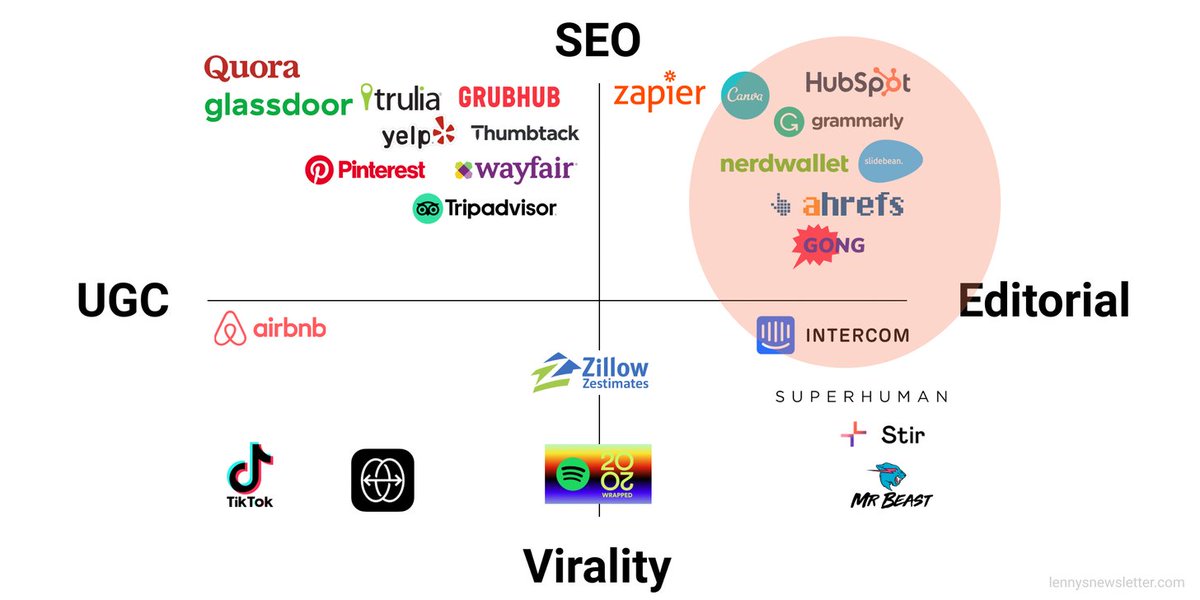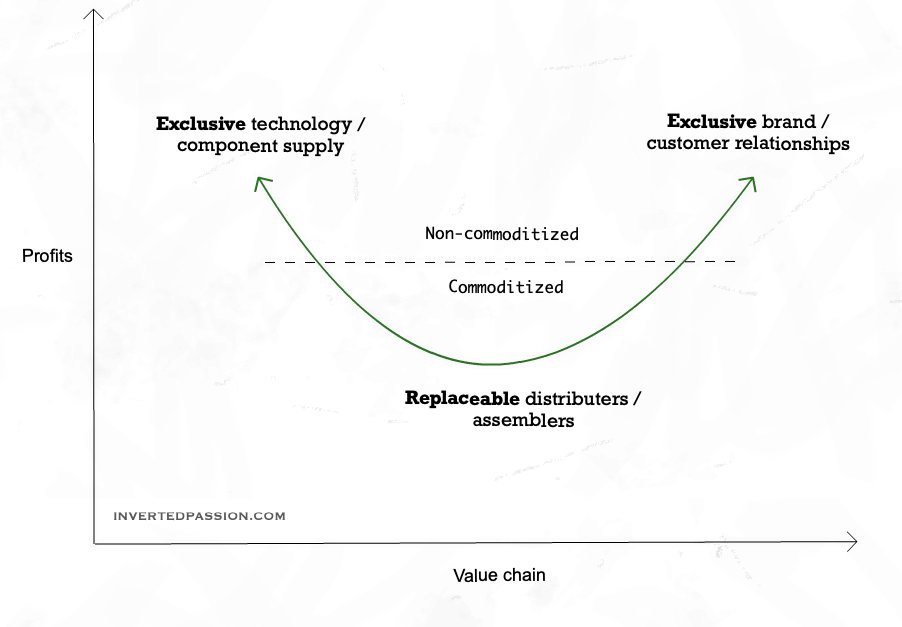I have two paths to becoming a billionaire: 1) start a world changing company 2) marry an early stripe employee
For software startup you should almost never get a patent. In my 2nd startup we spent months applying for 1, the startup failed because we didn’t make money and the patent was useless. As an investor patents are often a red flag as they show you are focusing on the wrong thing.
Staying focused and taking a long term view almost always compounds over time. Box at $800M run-rate has a bigger opportunity and more exciting roadmap ahead than at any other point in our history. Now, lots of work to do!
The age old question of do you want to take a small piece of a big market or a big piece of a small market is a strategic trap. You want a piece of a market that is artificially small now and will become big later with the right product.
Incredibly, the 4 largest tech companies in the world are all growing at unprecedented rates for their scale, and for entirely different reasons (ads, subscriptions, devices, commerce). Multiple paths for success.
Two strategies to grow as a startup: take from the existing addressable market, or expand the addressable market. When you do the latter, the former comes along for free.
The lesson always is: focus on expanding the market, not taking the market. twitter.com/alexeheath/sta…
We have reached the point of the internet where we are now bundling the things that we unbundled from the things that used to be bundled.
New post: Top 5 reasons marketplaces fail 1. Lack of demand-side PMF: Not enough customers badly need what you’re selling (e.g. Zimride, Kitchensurfing, Neighborrow, Sharingear, Design Inc, Mapudo, Wydr) Read on 🧵 lennysnewsletter.com/p/why-marketpl…
Peek at this week's post pic.twitter.com/POce56nQP6

Humanity's most consistent fallacy is assuming the present moment has it figured out. We look back and laugh at our assumptions from 50 years ago. Whilst simultaneously forgetting that 50 years from now they be will be laughing at us.
LUTKE LESSON 3 - THINK ABOUT THE LONG TERM The media narrative is often a dichotomy of Shopify vs Amazon. Few talk about the similarity both CEO's have for LONG TERM thinking. Both consistently warn shareholders that they will sacrifice short term revenue for long term value.
Tobi states that almost EVERY DECISION your business makes can pivot on JUST one question: "Are you optimizing for every individual transaction or the LIFETIME transaction?" - Tobi Are you playing INFINITE games or FINITE games with your customers?
Commoditize your value chain before it commoditizes you. (a 🧵 thread on this mental model) pic.twitter.com/e2n7DZuiJA

3/ If nurtured well, business partnerships create positive feedback loops that help rapidly grow a business Consider the case of Apple, famously vertically integrated company that makes its own OS, processor & phone components that most companies typically purchase from vendors
1/n Common business wisdom says going where the the puck is going, not where it is. I think it’s a bad advice. Here’s why.
6/ Entrepreneurs generally underestimate the size of a niche – so they say: “everybody can use our product”. When MailChimp launched, it was an email marketing service. Now it is more than $400-million-a-year-in-revenue powerhouse.
5/ Serving everyone is not the answer at an early stage. You need to have depth in a particular industry before you go broad.
4/ Just because you have the technology, you shouldn’t attack multiple markets. For example, the same technology – sending emails – has made many different multi-million dollar companies that focus on specific niches.
1/n In a new post on Inverted Passion, I comment on the difference between revenue and profit. Here’s the summary of it.
1/n Most entrepreneurs use the term “product-market” fit, but I prefer the term “market-product” fit. It might seem like a small shift of words, but I feel it has a major impact on an entrepreneur's success rate.
6/n The nature of feedback is also very different for B2B and B2C. Because consumer go with a lot of gut feeling and are distracted, the entrepreneur doesn't get enough and valid feedback. In B2B, every sale is a feedback that entrepreneur can use to improve the product
5/n Network effects also play a part. Consumer domain has a winner-take-all dynamic while businesses is a long tail effect. In spite of sales force, 100s of CRMs survive because of their sales process, implementation, or having that one feature that salesforce doesn't have.
4/n Consumers have been habituated to get stuff for free, while companies in many cases actually run away from free stuff. This possibility of cash is very enticing for an entrepreneur who is struggling with finding the market-product fit for his/her B2C product.
12/ How do you build moats? a) Increase your customers’ time and monetary investment into your products b) Store data that’s valuable to customers (but is hard to export) c) Involve customers’ colleagues (or friends) to interact with your product
9/ Beyond network effects, you can use other tactics to make it hard for competitors to enter in your market: a) Patent core technologies. b) Lock up exclusive distribution channels or partnerships. c) Get a favorable physical location. d) Reduce costs to absolutely minimum
6/ You can fight competition if you keep increasing the value that your customers get from your products. This option is the innovation treadmill that companies like Snapchat prefer. Danger in this approach is that since innovation is unpredictable, you cannot bank on it
4/ A major mistake that entrepreneurs make is that once a market-product fit is discovered, she gets busy with scaling the business, growing the business, increasing customer base. So, most entrepreneurs don’t think about creating defensible business until it’s too late.
1/n In my conversations with other entrepreneurs, I’ve come across tens of startups that started with a B2C angle but eventually succeed as a B2B company. (Slack, too, pivoted from a gaming company to messaging). Why do B2C startups often pivot to B2B?
1/ Monopolies are illegal but all major tech companies (Apple, Google, Facebook, Amazon) are *legal* monopolies. How does that happen? Let me show you how billions of $$$ profits are sustained against competition over decades. If you are an entrepreneur, this thread will help.